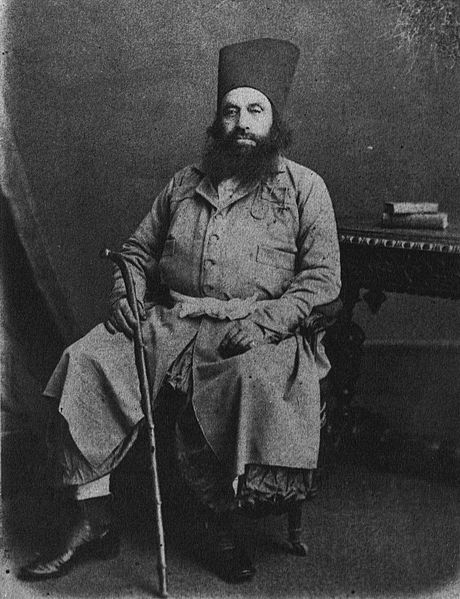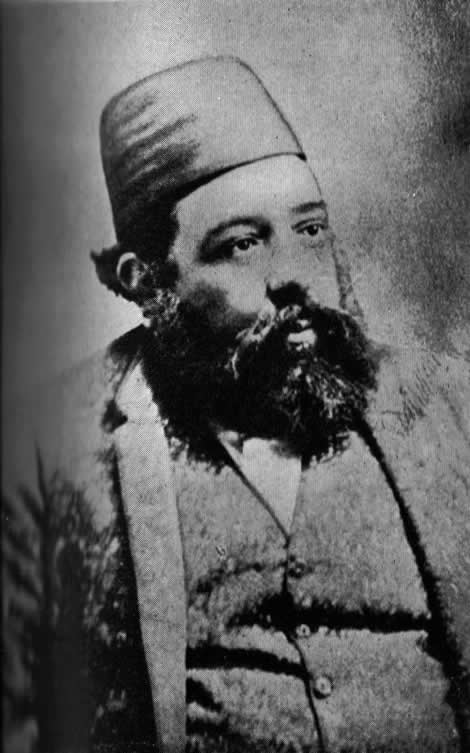 |
| Aga Khan I |
Aga Khan, the title ascribed to the imam of the Nizari Ismaili community, was first bestowed on Aga Hasan Shah by Fateh Ali, the Shah of Persia, in 1818. The Ismaili branch of Islam is the second-largest Shi'i community after the Twelvers. The Ismailis and Twelvers both accept the same initial imams from the descendants of the prophet Muhammad.
However, a dispute arose on the succession of the sixth imam, Jafar as-Sadiq. Although the Ismailis accepted the legitimacy of Jafar Sadiq's eldest son, Ismael, as the next rightful imam, the Twelvers accepted his younger son, Musa al-Kazim.
The first Aga Khan was appointed as the governor of the province of Kirman. He also aided the British during the first Anglo-Afghan War (1839–42) and in the conquest of Sind in India (1842–43). Ali Shah, who was also known as Aga Khan II, died in 1885.
  |
Upon the death of Aga Khan II, his son, Sultan Muhammad (1877–1957), assumed the title of Aga Khan III. He played an active role in supporting the continuance of British colonial rule over the Indian subcontinent. Aga Khan III was also the founder of the All-India Muslim League, the lead political party that later demanded a separate homeland for Muslims be carved out of India.
He was also the president of the Muslim League from 1909 to 1914. In the preindependence years of India, Aga Khan III made a number of high-profile visits abroad, including the imperial conference in London in 1930–31, the Geneva Disarmament Conference in 1932, and the League of Nations in 1932 and in 1934–37. In 1937, he was appointed the president of the General Assembly of the League of Nations for his pioneering leadership role.
 |
| Aga Khan II |
In 1937, Aga Khan III was succeeded by his grandson, Prince Karim, who assumed the title of Aga Khan IV. He was very committed to the promotion of Islamic architecture and instituted a series of awards for architectural excellence and artistic innovation in architecture. Aga Khan IV also donated very generously to various developmental projects in a number of countries with a sizable Ismaili population.
Prince Sadruddin Aga Khan is the grandson of Aga Khan IV. He has an impressive educational record with degrees from Harvard University at the Centre of Middle Eastern Studies in 1957. Sadruddin Aga Khan worked strenuously for the ideals and programs of UNESCO, particularly for the promotion of cultural heritage sites worldwide as well as for the UN High Commission for Refugees.
 |
| Aga Khan IV |
In 1965, he was appointed the UN High Commissioner for Refugees and continued in this prestigious position until 1977. He is the founder of the Bellerive Foundation, which is an international corporate group that funds programs for the alpine environment. In 1978, the prince was made a special adviser and chargé de mission to the secretary general of the United Nations to promote the cause of universal human rights.